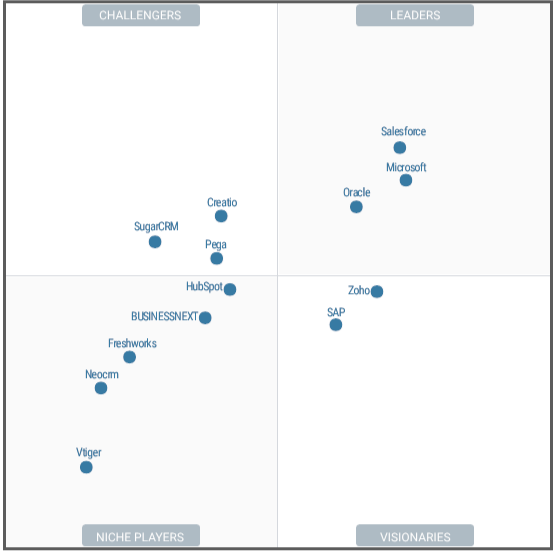|
Export Development Canada: Pioneering a Sustainable and Prosperous Future
Export Development Canada (EDC), a leading Crown corporation, is spearheading the advancement of Canadian businesses into a future that is both sustainable and prosperous, thanks to cloud-based solutions. EDC's Mission to Support Canadian Enterprises EDC, committed to aiding Canadian enterprises of varying sizes in tackling global business challenges, is driving innovation and global competitiveness amongst these businesses. This is achieved through a focus on robust sustainability practices. Central to its corporate strategy is the integration of environmental, social, and governance (ESG) principles, underpinned by its investment in cutting-edge digital infrastructure through Microsoft Azure. The Role of ESG Practices in Business Resilience The organization's support for Canadian businesses in enhancing their ESG practices not only boosts their resilience and global investment appeal but also fuels Canada's export trade growth. Victor Diamond, Vice President of Technology Operations and Services at EDC, highlights the importance of this approach. EDC’s Impact on Canadian Companies As the national export credit agency, EDC plays a pivotal role in empowering Canadian companies to make significant impacts both domestically and internationally, particularly in the context of the challenging realities of climate change. It provides the financial tools and expertise needed for these companies to confidently venture into new markets, minimizing financial risks and fostering growth from local to global stages. Sustainable Business as EDC’s Core Mission At the heart of EDC's mission is a deep-seated commitment to sustainable and responsible business. The corporation adopts a holistic ESG perspective in all its business operations. According to Victor Diamond, EDC regards strong ESG practices as essential not only for risk mitigation but also as key drivers of competitive advantage in the international market. Strategies for Global Export Growth Despite a decline in Canada's share of global exports over the past decade, EDC sees an opportunity to reverse this trend through strategic leadership in climate change and sustainability. As expressed in its 2050 net-zero commitment, EDC actively supports Canada’s trade-based economy by assisting its customers in understanding and addressing ESG risks, seizing opportunities, and innovating to reduce emissions and environmental impacts. Digital Transformation: A Pillar of EDC’s Strategy A key element of EDC’s strategy is its investment in IT infrastructure to support its ESG objectives and aid Canadian businesses. The organization aims to significantly reduce its operational carbon footprint, and a major step in this direction is its digital transformation, anchored on Microsoft Azure Cloud Services. According to Diamond, Azure is essential for EDC’s sustainability strategy, offering new digital capabilities and supporting the organization’s transformation journey. Azure Cloud Services at the Heart of EDC’s Transformation EDC's transformation also includes transitioning most of its internal data center capacity to the Azure cloud platform, a move expected to have a substantial impact on reducing its power consumption. The company aims to track its carbon impact goals using tools like Microsoft Emissions Impact Dashboard. Advancing Sustainable Business Practices EDC is also exploring ways to leverage Microsoft technology to assist its customers, potentially using Azure Databricks to track ESG metrics and support more sustainable business decisions. A key focus for EDC is supporting Canada’s clean technology sector, using Azure-driven insights to develop strategies that accelerate support for this sector and encourage decarbonization among Canadian companies. EDC: A Leader in the Low-Carbon Economy Transition In its role as a financial Crown corporation, EDC is dedicated to promoting the transition to a low-carbon economy. This commitment includes reducing its own carbon footprint and helping Canadian businesses become more competitive through strong ESG practices. Diamond believes that Azure is a crucial component of EDC’s digital toolbox, integral to the organization’s ongoing digital transformation.
0 Comments
The field of Sales Force Automation (SFA) is undergoing a transformative phase. Providers of these platforms are simplifying user interfaces and integrating cutting-edge generative AI to enhance essential features. This evolution is a significant asset for leaders in applications and software engineering, aiding them in refining their CRM sales strategies. Strategic Projections for SFA Platforms:
Sales force automation tools are integral in automating and managing sales activities, processes, and administrative tasks for sales professionals. These platforms facilitate seamless interactions with buyers through multi-experience, channel-neutral approaches, and various devices. They are pivotal in enhancing sales contact management, pipeline management, and opportunity management, among other aspects. Core Functionalities of SFA Systems: Standard SFA systems encompass a range of capabilities including:
Additionally, some SFA systems offer advanced features like CPQ applications, digital sales rooms, and tools for sales engagement and revenue intelligence. In essence, the evolution in sales force automation platforms is set to redefine the landscape of B2B sales, offering enhanced efficiency and more intuitive user experiences. These advancements are not just technological leaps but are reshaping the way sales teams interact with prospects and manage their sales processes. Exploring the Dynamics of Sales Force Automation Platforms in the Magic Quadrant The Magic Quadrant offers a comprehensive analysis of key players in the Sales Force Automation (SFA) sector, highlighting BUSINESSNEXT, Creatio, Freshworks, and HubSpot. BUSINESSNEXT: A Market Overview Formerly known as CRMNEXT, BUSINESSNEXT has rebranded and expanded its suite to include various enterprise solutions, focusing on financial services and insurance. It's recognized for integrating AI/ML capabilities and enhancing user experiences. BUSINESSNEXT stands out for its platform flexibility, offering solutions like CRMNEXT for SFA, DATANEXT for data management, and CUSTOMERNEXT for customer experience. Despite these strengths, it faces challenges in implementation service diversity and a limited marketplace for extending functionalities. Creatio: Strengthening Its Position Creatio has made significant strides in improving its application's user interface, catering to a broad range of sales scenarios. It integrates advanced AI technologies like ChatGPT for workflow automation and plans to further embrace generative AI for app development. Creatio is celebrated for its robust guided selling capabilities and strong customer community. However, it does have limitations in post-sale customer support and collaborative SFA capabilities. Freshworks: Catering to Diverse Needs Targeting mainly small and midsize enterprises, Freshworks offers a SaaS solution hosted on AWS. Recent updates include enhanced configure, price, quote capabilities, and customizable sales journeys. The platform is lauded for its affordability and collaborative features. However, it lags behind in certain product capabilities and vertical industry support, especially in predictive forecasting. HubSpot: Expanding Its Reach HubSpot is recognized for its SFA product, Sales Hub, which supports small to midsize deployments. The platform has undergone significant UI enhancements and data model improvements. HubSpot is commended for its extensive range of integrations and comprehensive native capabilities. Nonetheless, it faces challenges in pricing complexity and services for larger enterprises. Microsoft Dynamics 365 Sales:
Strengths:
|
AuthorWrite something about yourself. No need to be fancy, just an overview. Archives
March 2024
Categories |
|
Saudi Arabia
PO Box 12831 2357, Al Malaz - Zaid Ibn Thabit street, Venicia Building, Riyadh, Saudi Arabia. |
United States4008 Louetta Rd
Spring, Texas 77388 USA |
Home
|
Request a demo
|



 RSS Feed
RSS Feed

